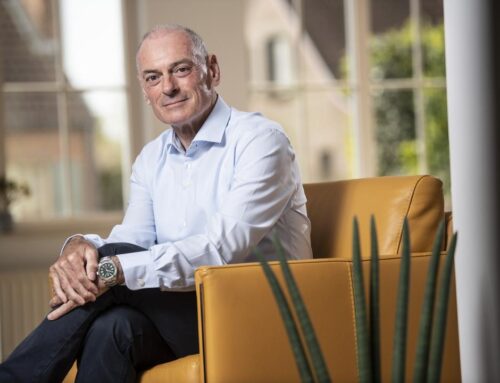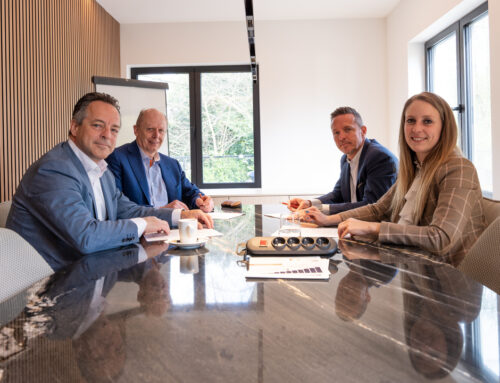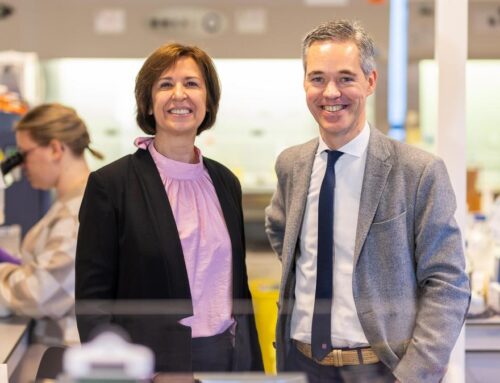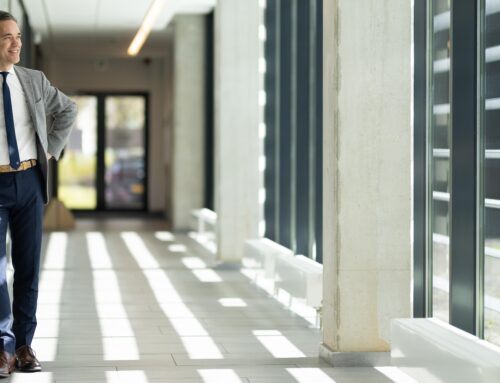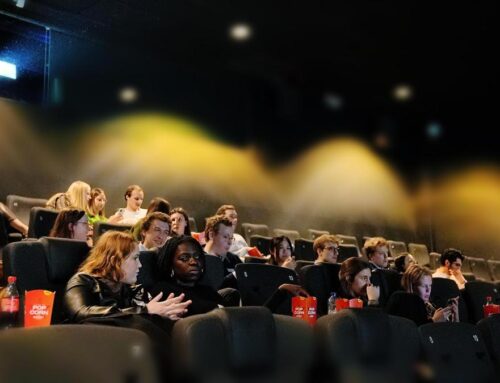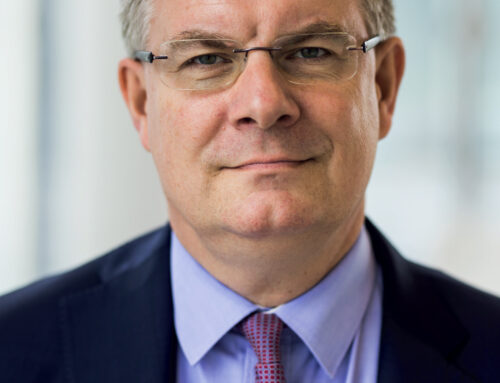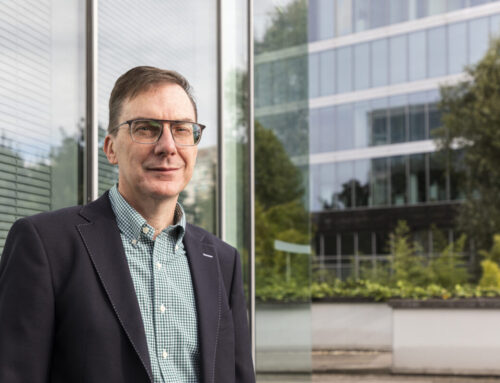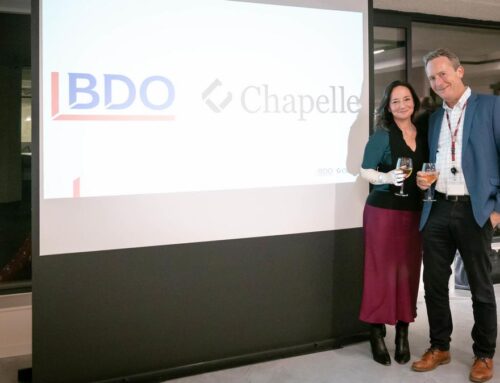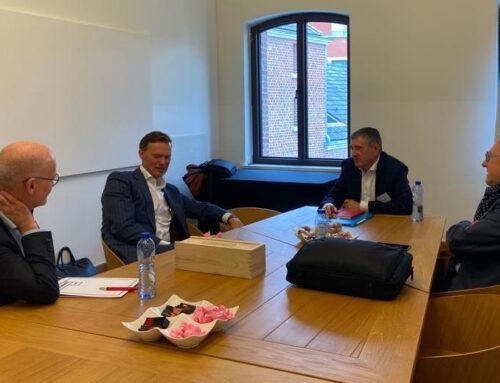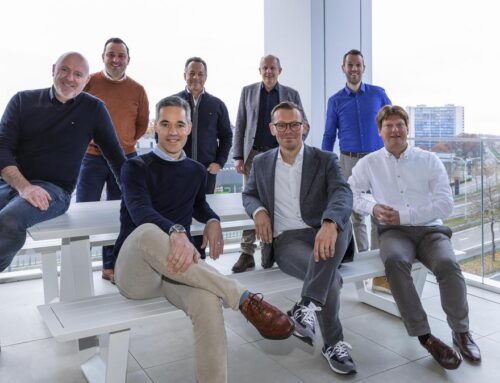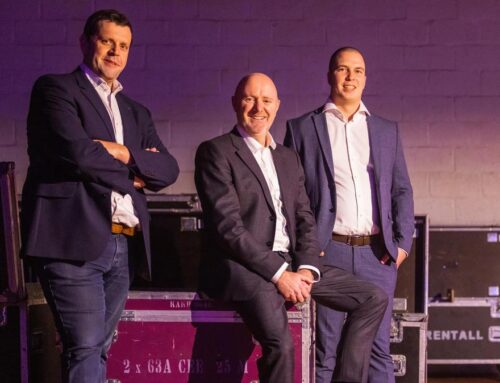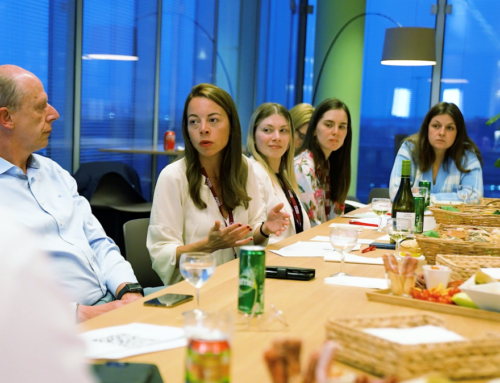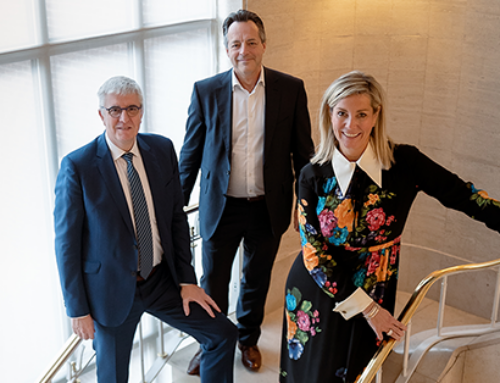“There is more in us”
Cross-pollination becomes a lever for growth in the real estate & construction industry
Real estate is present everywhere and in all forms in BDO’s business worldwide. Sometimes very visibly, more often not on the radar, but undeniably active. By mapping out and connecting all these services and expertise, BDO Global is striving to increase our strength in the industry. How exactly? Ayman Chalak (BDO Global) and Erik Van den Broeck (BDO Belgium) have the floor.
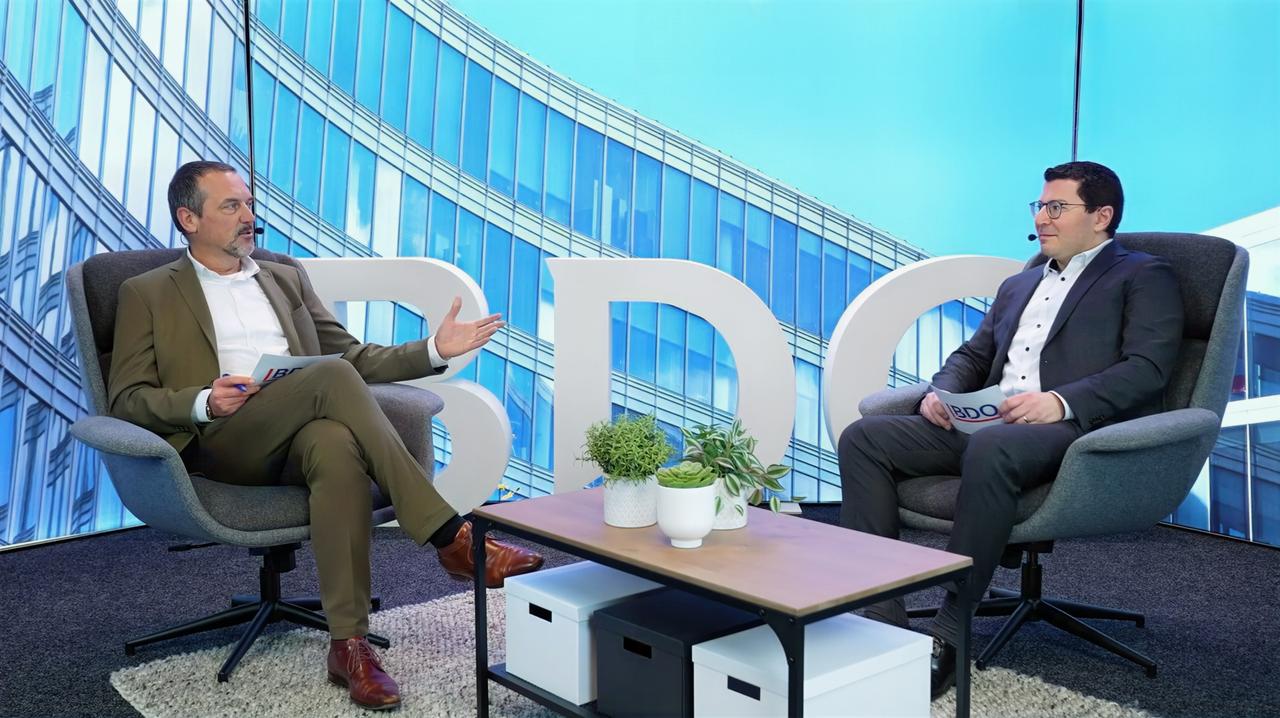
“BDO Belgium has many years of experience in PPP, and wants to play a major role in the expected growth in the offer.”
In 2023, the Real Estate & Construction (REC) industry represents about 10% of BDO Belgium’s turnover. The industry also represents a similar share in BDO Global. “And we are growing,” laugh Erik and Ayman, who are responsible for business development in the industry at BDO Belgium and BDO Global, respectively. “This growth is mainly driven by social trends, such as the demand for more sustainable buildings and infrastructure, the circular economy, consolidation within the industry, and the rise of PPP (public-private partnership) projects.”
Erik: “In particular, the striving for sustainability is a central driver for investors and the financial world. After all, they need to be compliant with, for example, the European regulations and Green Deal targets. Their investment decisions increasingly depend on the level of sustainability of real estate and infrastructure projects. The two worlds work like communicating vessels.”
Connect the dots
To further stimulate this growth, it is necessary to map out in detail the activities in the REC industry internally within the BDO Global community. Ayman is still amazed at how many different niches in the industry we operate in all over the world (read the insert ‘BDO globally active in the REC industry’). “Put all this knowledge and know-how together – ‘connect the dots’ – and you cover all the ins and outs of the industry. Hence, the importance of all of our offices being aware of each other’s expertise and sharing with each other so that they can use the expertise to develop their own local business or to focus on cross-border projects with multiple BDO offices.”
To support them in this, BDO Global is developing numerous initiatives that effectively help to generate more turnover. “Think of support when making quotations,” Erik offers as an example. “Suppose you, as a Belgian construction company, want to compete for a project abroad. Then the input from local BDO experts is very valuable in enabling you to take local regulations, cultural sensitivities, etc. into account.”
Thanks to growing international cooperation, BDO can also focus more actively on the large multinational players in the REC industry. Ayman: “The middle market remains our scope. But when you know that the REC industry is consolidating, then, as a service provider, you must follow your (potential) customers and develop your services more internationally as well. Moreover, without realising it, various BDO offices today sometimes already work for the same multinational customer. It would be crazy not to share that knowledge and effort with each other. Because the more knowledge and expertise you share, the more the customer trusts you, and the more business opportunities you create.”
“The better all of our offices share their expertise with each other, the more growth opportunities we create.”
3 to-the-point questions
- 1
How can companies active in the REC industry address the acute talent shortage?
Ayman: “Recent research by BDO Global (read the insert ‘Global talent shortage in construction: key findings survey’) among final-year students and businesses shows that construction companies are struggling to find and retain the right talent – while, at the same time, they’re facing an increasing outflow of skilled workers. The COVID-19 pandemic was an important trigger here.”Erik: “The industry is trying to address the shortage of skilled workers by standardising building products and, for example, using more prefabricated components (such as a plug-and-play toilet system), which means that they need fewer skilled workers on site.”
- 2
In a country like Belgium, just about everyone agrees that we must safeguard the open space. As a result, the available building space is becoming smaller and smaller. Is the industry in trouble?
Erik: “It seems like a contradiction, but despite the shrinking availability of building space, the industry is growing. The demand for affordable, sustainable and comfortable living and working spaces is increasing. The COVID-19 crisis made the importance of a liveable neighbourhood with sufficient local greenery and amenities even more clear. This trend is exacerbated by the pressure to live more sustainably and to (re)build in a circular manner. As a result, more and more investments are being made in ‘smart cities & buildings’ and the focus is shifting from out-of-town new building projects to inner-city valorisation of the existing living and working environment.”Ayman: “At the same time, complexity is increasing. Compliance requirements are becoming increasingly stringent, circular processes require companies to reinvent their business model, and so on – which also increases the demand for specialised guidance and support.”
- 3
In the last decade, PPP (Public-Private Partnership) projects have again been on the rise. What opportunities do they offer, and what are the risks, and pitfalls?
Ayman: “Large infrastructure works – such as constructing metro lines, bridges, motorways, hospitals, prisons, airports, etc. – in collaboration with the public sector require very specific knowledge and know-how. These projects are so specific that you do not necessarily have to develop them in every country. It’s more important that the available knowledge be accessible to all our offices.”Erik: “As private partner, you are often also responsible for the project’s long-term management and maintenance. That’s a risk as well as an opportunity. This is where a ‘centre of excellence’ can bring solace – a kind of platform where experts from different countries cross-pollinate and share their knowledge with those offices that see an opportunity but lack sufficient expertise themselves. Without such a knowledge pool, they would probably miss out on the opportunity – and, of course, we want to avoid that. Remember that sufficient financial resources – think investment funds – are available in Belgium for large infrastructure works – but sufficient projects are currently lacking.”
Ayman: “Do not forget the growing infrastructure works in renewable energy: such as solar parks, biomass plants, off- and onshore wind turbines, even waste water management and water treatment plants. We advise customers all over the world about investments in renewable energy, but we do not extrapolate this knowledge enough towards the REC domain.”
BDO globally active in the REC industry
Almost every BDO office in the world is active in real estate and infrastructure in one way or another, through a wide range of services. The BDO Global Real Estate & Construction group invests in relationships that focus on partnership and growth.
Global talent shortage in construction: key findings survey
BDO’s Global Real Estate & Construction team undertook a global survey to examine the opinions and attitudes of university students towards considering/pursuing a career in the industry.
The survey aims to gain insight from countries across 5 continents on how attractive the construction sector is for the new generation and how their values and beliefs shape their perspective. It also gathers input from professionals currently working in the sector. Some of the survey’s key findings are:
- 1Skills shortages and talent retention challenges are negatively impacting construction industry performance.
- 2Although the demand for skilled construction roles remains robust, students are turning away from a career in the industry.
- 3Corporates in construction are not aligned with what is most important to the students’ future career aspirations.
- 451% of construction companies anticipate increasing the size of their workforce in the next 6 months. 50% of the corporate decision-makers surveyed say they find it very difficult to attract and retain early career professionals to roles in the construction sector.
- 5Gen Z say that construction’s perceived negative environmental and social credentials are putting them off the industry.
- 6Recruitment efforts in construction are misfiring – a fresh think on strategies and tactics is needed.
More details about the survey?


